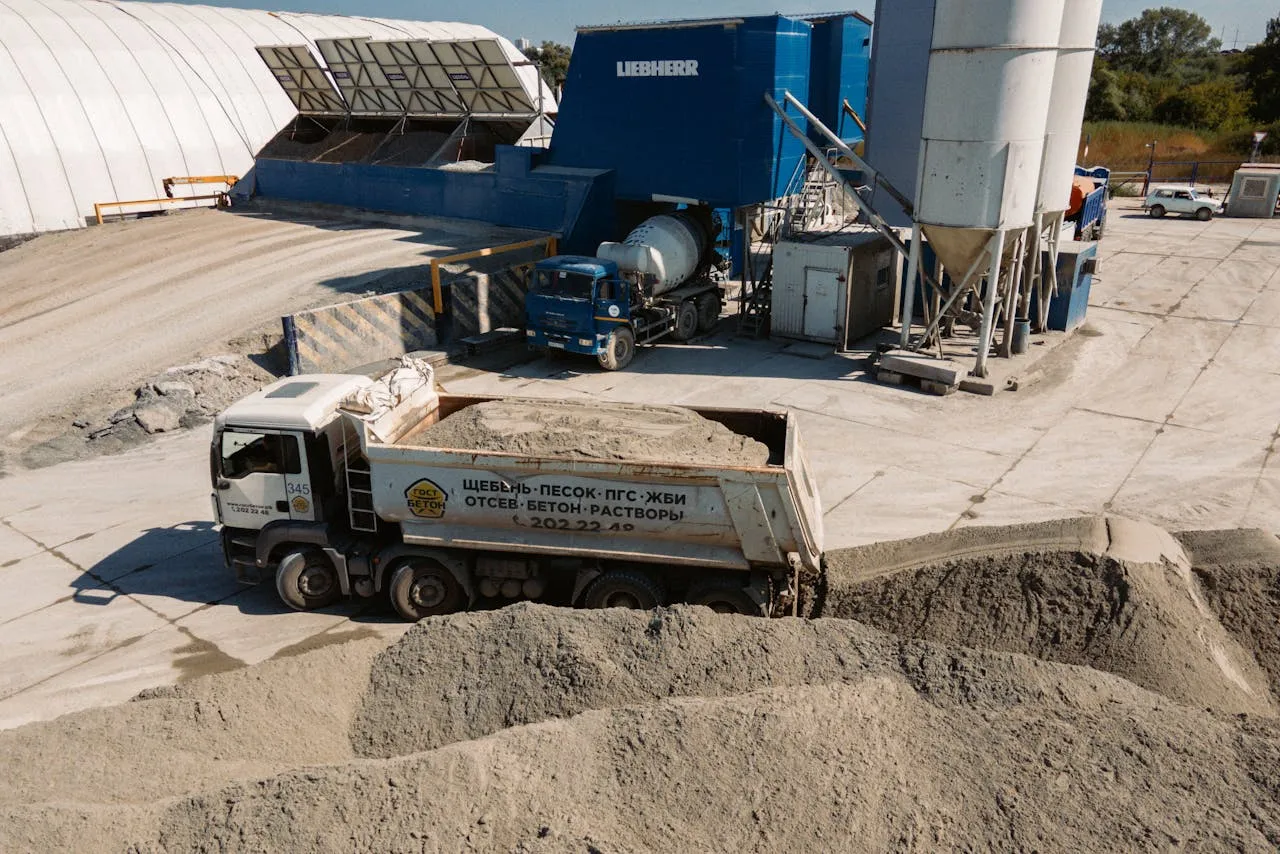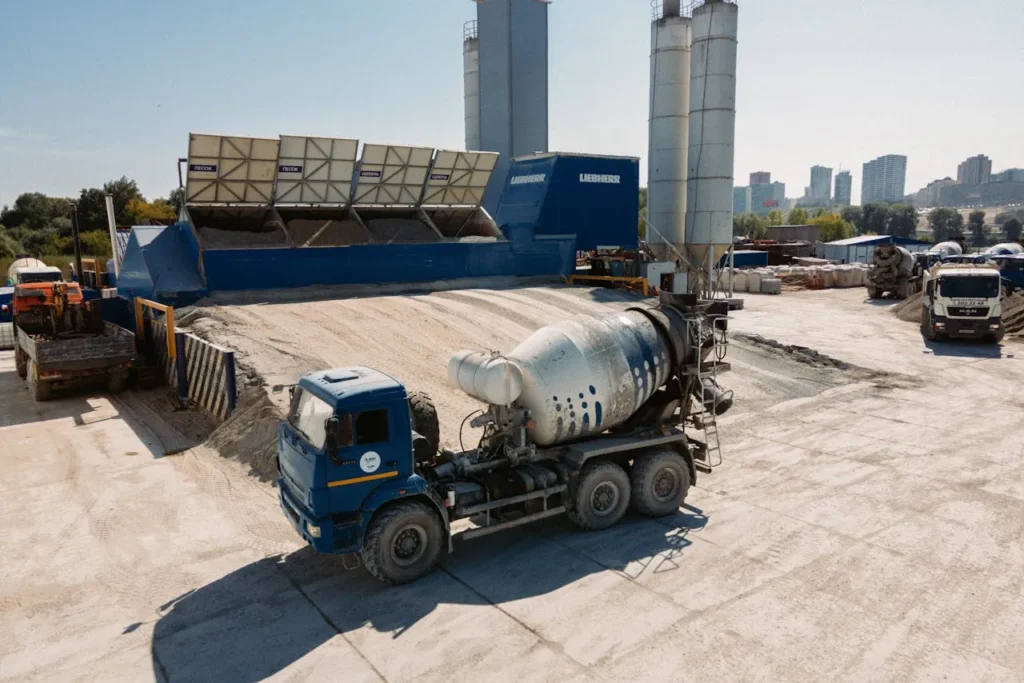
Terra CO2 Secures Additional Series B Funding to Expand Sustainable Cement Production
Terra CO2 (Terra), a pioneering U.S.-based company specializing in low-carbon building materials, has announced the successful close of its Series B funding round, securing $124.5 million in new equity capital. This significant infusion of funds marks a major milestone in Terra’s mission to transform the construction materials industry by offering scalable, sustainable alternatives to conventional cement products.
The funding round was co-led by several prominent climate-focused investors, including Breakthrough Energy Ventures, Eagle Materials, GenZero, and Just Climate. Also joining the investment round was Barclays Climate Ventures, a division of global financial services provider Barclays, which made a major investment reflecting the growing interest from the finance sector in scalable climate solutions. Other strategic investors participating in the round include Prologis, a global leader in logistics real estate; Cemex, an international leader in the production and distribution of construction materials; and Siemens Financial Services, the financing division of the global technology company Siemens.
Beyond the equity funding, Terra also secured a credit facility co-led by Silicon Valley Bank—a division of First Citizens Bank—and Stifel Bank. This facility provides the company with added financial flexibility, enabling strategic scaling while maintaining financial resilience.
Bridging Innovation and Infrastructure Without Dependency on Subsidies
As government subsidies and public funding for climate initiatives begin to decline in the United States, the onus is increasingly on private enterprises to develop commercially viable and cost-competitive solutions that work within current industrial frameworks. Terra’s approach stands out because it does not rely on subsidies or tax incentives to be market-ready.
At the core of Terra’s value proposition is its patented Supplementary Cementitious Material (SCM) technology, a platform designed to deliver materials that can be adopted without compromising on performance, cost, or compatibility with existing industry practices. Terra’s flagship SCM product line—branded as OPUS—offers a high-performing, lower-cost alternative to traditional Portland cement and dwindling resources like fly ash, which has been historically used as a cement substitute.
“Terra’s mandate is to deliver cementitious material solutions that the market would purchase solely based on cost and performance, even if there was no carbon benefit,” said Bill Yearsley, CEO of Terra CO2. “The fact that Terra’s cementitious materials also offer significant carbon mitigation is an additional advantage for the built environment. This dual value proposition enhances our attractiveness to both commercial and environmental stakeholders.”
Immediate Commercial Impact: Facility in Dallas-Fort Worth
With the newly raised capital, Terra is set to move quickly into commercial-scale operations. One of the most immediate outcomes will be the construction of the company’s first advanced processing facility in the Dallas-Fort Worth area. This facility is projected to produce 240,000 tons per year (TPY) of Terra’s SCM product and will serve as a blueprint for future replication across multiple geographies.
This commercial facility is a critical component of Terra’s go-to-market strategy. It serves not only to meet the growing demand for sustainable construction materials in Texas, a rapidly developing region, but also to demonstrate the scalability and operational feasibility of Terra’s process across the U.S. and beyond.
The new capital will also support:
- Expansion of Terra’s office space and industrial infrastructure to accommodate rapid growth.
- Significant hiring across engineering, R&D, operations, and business development functions.
- Acceleration of additional commercial projects that are already in the planning stages.
- Continued innovation and development of next-generation cementitious products, including full Portland cement replacements.
OPUS Products: Designed for Compatibility and Performance

Unlike many other low-carbon cement alternatives that often depend on novel or limited feedstocks, Terra’s OPUS products are formulated using inexpensive, abundant, and locally available raw materials, typically sourced from existing aggregate mining operations. This availability not only reduces cost and environmental footprint, but also simplifies the logistics of raw material procurement and shortens supply chains.
The OPUS line has been designed to integrate seamlessly into existing concrete mixing and construction workflows, eliminating the need for major modifications to batching plants or structural design specifications. This plug-and-play approach is one of the key reasons Terra has received support from legacy construction players like Cemex and Eagle Materials, both of which have deep knowledge of the challenges facing cement producers and users today.
The company’s second product, OPUS Zero, is currently undergoing active concrete trials and is intended to serve as a complete replacement for traditional Portland cement. If successful, OPUS Zero would represent a major breakthrough in sustainable construction, eliminating the need for clinker—a highly carbon-intensive input—in its entirety.
Strategic and Institutional Investor Confidence
The participation of established institutional investors and multinational corporations underscores the strength of Terra’s business model and the growing market demand for low-carbon infrastructure materials. Steven Poulter, Head of Barclays Climate Ventures, remarked on the investment’s alignment with global decarbonization goals:
“Terra’s technology offers a combination of commercial readiness and cost competitiveness. Its ability to support the decarbonization of a heavy industry such as cement aligns with our commitment to support scalable, near-term solutions in hard-to-abate sectors.”
Barclays’ involvement reflects a broader trend in the investment community where financial institutions are increasingly prioritizing environmental impact alongside financial returns. By backing companies like Terra that have tangible, scalable solutions, these institutions are playing a key role in driving systemic change across carbon-intensive industries.
Addressing the Global Cement Challenge
Cement production is one of the most significant contributors to global greenhouse gas emissions, accounting for nearly 8% of global CO₂ output. The industry’s reliance on high-temperature kilns, carbon-emitting clinker, and energy-intensive processes has made it notoriously difficult to decarbonize. With growing demand for new infrastructure in both developing and developed nations, the need for low-carbon alternatives is more urgent than ever.
Terra’s approach—grounded in science, supported by industry, and validated by investors—represents a compelling answer to the cement industry’s emissions challenge. The company’s ability to deliver products that offer performance and economic value, with the added benefit of carbon reduction, places it in a strong position to influence future construction practices.
As Terra CO2 moves forward with its expansion, the company is focused on deploying its technology at scale, continuing to innovate with new product lines, and building partnerships across the construction ecosystem. With a growing team, expanded facilities, and robust financial backing, Terra is well-positioned to lead the shift toward a low-carbon construction industry—offering solutions that are ready not just for the future, but for immediate use today.
By integrating cost-efficiency, environmental responsibility, and scalability, Terra CO2 is laying the foundation—quite literally—for a more sustainable built environment.




